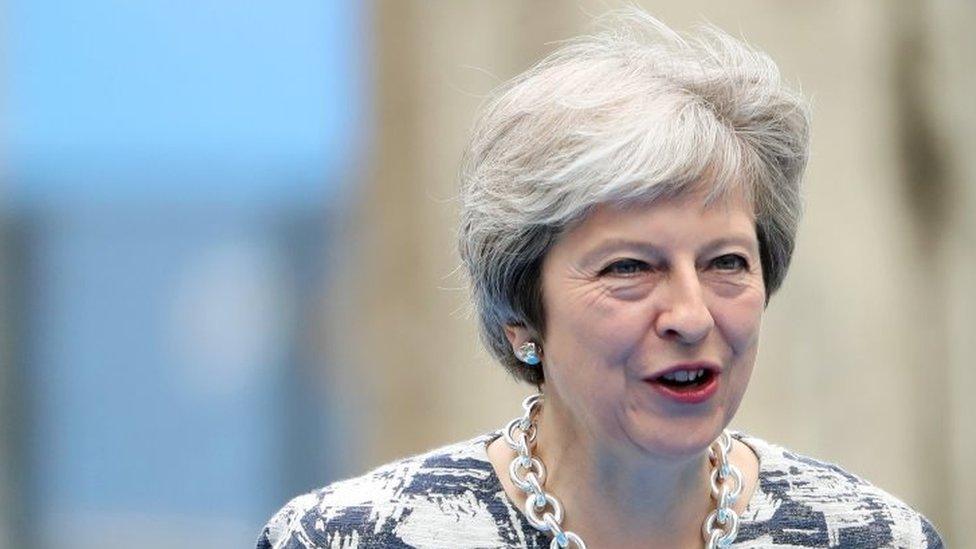Brexit White Paper stresses the UK can't have it all
- Published

Finally, the government's plan for Brexit is not as its critics have complained, a blank sheet of paper.
Instead, it's a White Paper, external, a long document that spells out the compromise Theresa May brokered at Chequers last week.
It will be pored over in the days to come.
In the main, it's pretty unsurprising and follows the direction of travel the government has adopted of late, giving more detail of how a new customs arrangement will avoid a hard border in Northern Ireland, and protect manufacturing; how a new system will work which would see the UK following EU law but not be directly affected (although hugely influenced) by the European Courts, and how freedom of movement as we know it - that allows unlimited immigration to the UK from the EU - will come to an end.
Given there have already been two cabinet resignations over the plan, it's blindingly obvious that the bits we know about are going to cause huge trouble in the Tory Party.
But on first examination of the detailed paper, three things jump out.
The government have described their plan for an "association agreement", for the first time.
Such agreements were created originally to help countries that wanted to join the EU get ready.
They're used more widely now.
But some Brexiteers won't like the idea of using that model as a jumping-off point.
Secondly, while officials are adamant there is no way that the paper argues for the kind of freedom of movement we have now, it points the way to allowing workers to come to the UK without visas, and also opens the door to some kind of reciprocal arrangement with the EU on benefits.
Government sources insist this doesn't mean anything like the kind of free access that EU citizens have now, and indeed, that UK nationals have on the continent.
But it does sketch out potential for giving EU citizens preferential access to the UK after we leave the EU.
Lastly, it's notable how many times the White Paper says, in terms, that we can't have it all.
The document accepts many times that in some areas there will be more barriers to doing business after Brexit, and that in some areas the UK might lose out.
And by not going for one whizz bang agreement on services, the largest part of the UK economy has less assurance than goods and manufacturing.
Some MPs are already calling it a "hard Brexit" for services, even though, overall, the deal suggests much closer ties to the rest of the EU than many Brexiteers had desired.
For the prime minister and the government it's an important step in spelling out the reality of leaving - more political freedom does, this paper suggests, come at a cost.
And it is a compromise, which by its very nature, can't please everyone.
For the prime minister, there are delicate days ahead, to keep the competing interests on board.